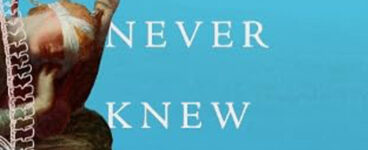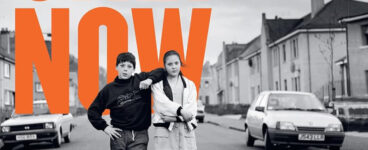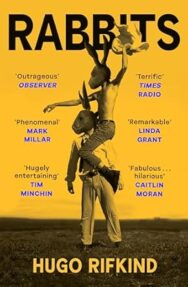‘I’m not sure I’ll ever get over it.’
Hugo Rifkind’s debut novel Rabbits follows Thommo, a product of the middle-class, as he moves to a prestigious boarding school and is thrust into the decadent, decaying world of an elite struggling for relevance. What better, then, to hear from the author himself on some of the school-set novels that have influenced him?
Rabbits
By Hugo Rifkind
Published by Polygon
The Liar – Stephen Fry
Adrian Healey is at an English public school in the 1970s. Here, his two major hobbies seem to be saying incredibly witty things, and also having lurid, glutinous sex with his fellow pupils. Boys fumble in dorms, behind trees, and on school trips, and are fairly open about their lusts and loves.
Really, though, all of this is part of a depiction of public schools as alien, parallel worlds. Fry is particularly good their archaic traditions, such as the rituals of meeting for toast, and the embedded system of “fagging” by which younger boys serve older ones. It’s brilliantly evocative, particularly in its message that none of them ever quite get over it. ““Little girls grow up to be women,” writes Fry, whereas “little boys grow up to be little boys.”
Decline and Fall – Evelyn Waugh
Only part of Evelyn Waugh’s novel about the social collapse of Paul Pennyfeather is set in a school, but it’s the best part. The whole place is crumbling and mad.
Newly employed as a teacher, in one scene Pennyfeather is attempting to take a rollcall. Various boys all claim to be called “Tangent” while others, who actually might be, insist they are not. The teacher, writes Waugh, “felt desperate.” Then, “in a few seconds, the room had become divided into two parties: those who were Tangent and those who were not. Blows were already being exchanged.” That’s school, right?
Pyramids – Terry Pratchett
Before Terry Pratchett’s fantasy reaches Djelibeybi, a magical, Egyptian-style kingdom, our hero Teppic attends the Assassin’s Guild in Ankh-Morpork, essentially a parody of the most brutal boys’ boarding school imaginable.
Literally it is life and death, but against a background of spots, friendships and hormones. There’s a fantastic scene where Arthur, a tiny new boy from an obscure religious cult, doggedly attempts to sacrifice a goat on his first night in his dormitory. “Pious little bastard!” says somebody, throwing a pillow at him. And I wouldn’t say it was exactly like that being the only Jewish kid at a quite churchy Scottish boarding school in the 1990s. But it wasn’t far off.
New Boy – William Sutcliffe
Mark, Sutcliffe’s protagonist, is a sex-obsessed boy at a London private school, clearly based on Sutcliffe’s own Habedasher’s Aske’s. Generally hilarious, New Boy is particularly brilliant on the mad social codes of school, and the hierarchies.
Mark is a low-status kid at school itself, but has higher status on the school bus, which is just one of many tremendous observations about how these things work. Another kid, all floppy-haired and aristocratic, is regarded as an inexplicable oddity at this school dominated by the children of urban professionals. One rumour behind him being there is that “it was a punishment for his parents for trying to steal an estate in Kent.”
There’s also a tremendous tone of blithe school sociopathy, as seen in the terrible way Mark gets his nickname “Bruno” (which I won’t spoil), and in the smirking pleasure he and his peers take in the terrible misfortunes of others. It’s just so damn honest. Too honest, maybe, but I loved it.
Never Let Me Go – Kazuo Ishiguro
Sad and haunting, this a novel about a parallel 1990s in which lab-grown children are harvested for their organs. It begins in Hailsham, a boarding school where many of them are raised. At first, none of these lonely, abandoned kids quite grasp what they are being raised for, but there’s a muted awareness that it’s definitely for something.
The most beautiful bits of this book actually come later, when the characters are in their teens and given a little more freedom. In a series of rural cottages, they role play as adults, experimenting sexually and wondering who to be, faintly in denial about the inescapable destiny which means it isn’t really up to them. You can read it as a pure dystopia, but it is also a story of social conditioning, and in a way, of class. I’m not sure I’ll ever get over it.
Rabbits by Hugo Rifkind is published by Polygon in June, priced £14.99.
ALSO IN THIS ISSUE

 Hope Never Knew Horizon by Douglas Bruton
Hope Never Knew Horizon by Douglas Bruton
‘Do something, Ned Wickham, or I shall think you a Godless man and hard-hearted.’

 Only Here, Only Now: Q & A with Tom Newlands
Only Here, Only Now: Q & A with Tom Newlands
‘I wanted to write a really vivid book that could tackle some heavy subject matters with warmth and …













